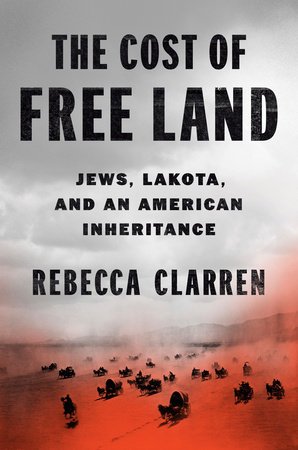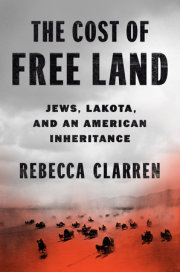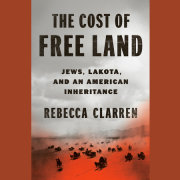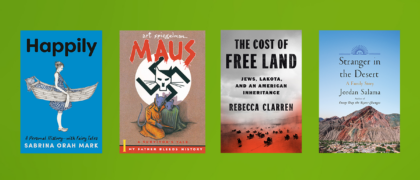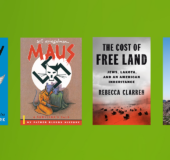Praise for The Cost of Free Land:
“A monumental piece of work… Clarren felt the urgent need to understand just how much her family had benefitted from the genocide and erasure of its land’s first people. The result is what will become a classic of personal journalism and memoir, a book to join Jesmyn Ward’s “Men We Reaped,” Terry Tempest Williams’ “Refuge” and Elissa Washuta’s “White Magic” as examples of work that sees the clear link between the personal and American culture and history.”—The Boston Globe
"With her powerful book, Clarren not only shares this hidden history, but continues to ‘pursue justice, to repair the world, to take responsibility for our part.'"—Jewish Book Council
"A timely new investigation . . . [the book] is inspiring important conversations across Jewish and indigenous communities about space, identity, and family history."—Lilith
"A unique and important contribution to American history. . . . Throughout this sweeping history, Clarren focuses on individuals, profiling several generations of her family, all of whom eventually left Jew Flats—one relative became a rodeo rider and oil prospector—as well as Joseph White Bull, a Lakota chief and contemporary of her great-grandparents, and his descendants. . . . An empathetic and eye-opening account."—Publishers Weekly (*starred review*)
"Memorable... Fascinating... A deft mix of personal and social history that recounts the transfer of Native American lands to non-Indigenous settlers, including Jews fleeing antisemitic violence. . . [The Cost of Free Land] seeks a humane path toward restitution."—Kirkus (*starred review*)
"Drawing on Jewish traditions of reconciliation, Clarren seeks to find a path for meaningful reconciliation and reparation for the harm done to Native people. Her present-day family provides a remarkable model for compensation, repentance and transformation that can begin to heal the wounds from our past."—BookPage (*starred review*)
“This heartfelt and well-researched work introduces us to little-known historical realities. Perhaps even more important, Rebecca Clarren explains and models how each of us can approach dealing with uncomfortable truths about the past, and begin to move forward towards healing wounds and wrongs left unaddressed for too long.”—Brett Lee Shelton, Native American Rights Fund
“In this gripping book, Rebecca Clarren turns her unflinching gaze on her Jewish ancestors who escaped persecution only to unwittingly take part in a holocaust that, in the words of one Lakota man, ‘lasted four hundred years.’ In taking to heart the counsel of both Indigenous elders and Jewish leaders to seek truth and make redress, she creates a new model for engaged history.”—Margaret Jacobs, author of After One Hundred Winters: In Search of Reconciliation on America’s Stolen Lands
“Meticulously researched and intricately woven, The Cost of Free Land proves our personal stories inextricable from our collective history. In her deft distinctions between mythmaking and truth telling, ownership and belonging, absolution and real repair, Rebecca Clarren has written a profound, important book.”—Sierra Crane Murdoch, author of Yellow Bird: Oil, Murder, and a Woman’s Search for Justice in Indian Country
“With compassion and guts, Rebecca Clarren illuminates a riveting and important history, while contemplating what should be done about past —and persisting — injustice.”—David Wolman, author of Aloha Rodeo: Three Hawaiian Cowboys, the World's Greatest Rodeo, and a Hidden History of the American West
“The flight of Rebecca Clarren’s ancestors from Russia to South Dakota entangled their rising prospects as immigrants with the reduced possibilities of the Lakota. This surprising book reveals the burdens the past creates and the rewards and obligations it offers.”—Richard White, Pulitzer Prize-winning author of The Middle Ground: Indians, Empires, and Republics in the Great Lakes Region, 1650-1815

